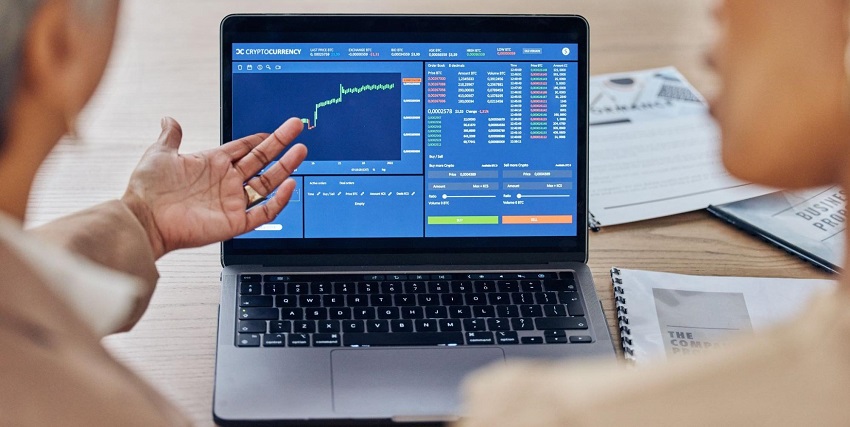The foreign exchange market, often abbreviated as forex or FX, is a global marketplace where currencies are traded. This market plays a crucial role in international trade by enabling businesses and individuals to convert one currency into another, facilitating cross-border transactions. In this blog, we will explore the function of foreign exchange market, how it supports international trade, and the features of foreign exchange rates that are essential for businesses engaging in global commerce.
Table of Contents
Understanding the Function of the Foreign Exchange Market
The primary function of foreign exchange market is to provide a platform for the conversion of currencies.
- This is essential for international trade, where businesses need to transact in different currencies.
- The forex market operates 24 hours a day, five days a week, allowing for continuous currency trading.
- This constant activity ensures that businesses and individuals can execute currency exchanges at any time, providing flexibility and efficiency in international transactions.
Role of Foreign Exchange Rates in International Trade
Foreign exchange rates are crucial in determining the value of one currency in relation to another. These rates fluctuate based on various factors, including economic conditions, interest rates, and geopolitical events. Understanding how these rates work is vital for businesses involved in international trade.
Foreign exchange rates also impact the competitiveness of a country’s exports. If a country’s currency strengthens, its goods become more expensive for foreign buyers, potentially reducing export volumes. Conversely, a weaker currency makes exports cheaper and more attractive to international buyers. This dynamic influences global trade patterns and economic relationships.
Features of Foreign Exchange Rates
Several features characterise foreign exchange rates and impact their behavior:
- Spot Rate: This is the current exchange rate at which currencies are traded for immediate delivery. The spot rate reflects the present value of one currency in terms of another and is frequently used in international transactions.
- Forward Rate: Unlike the spot rate, the forward rate is used for transactions that will occur at a future date. Businesses often use forward contracts to lock in exchange rates for future transactions, protecting themselves from potential fluctuations.
- Floating Vs Fixed Rates: Exchange rates can be either floating or fixed. Floating rates are determined by market forces and can fluctuate based on supply and demand. Fixed rates, on the other hand, are pegged to another currency or a basket of currencies and are maintained by the central bank.
- Bid and Ask Prices: In the forex market, currencies are quoted with a bid price (the price at which a trader can sell) and an ask price (the price at which a trader can buy). The difference between these prices is known as the spread, which reflects the cost of trading.
- Currency Pairs: Foreign exchange rates are quoted in pairs, such as EUR/USD or USD/JPY. The first currency in the pair is known as the base currency, and the second is the quote currency. The rate indicates how much of the quote currency is needed to buy one unit of the base currency.
How the Foreign Exchange Market Supports International Trade
The forex market facilitates international trade in several key ways:
- Currency Conversion: As mentioned earlier, the primary role of the forex market is to enable currency conversion. This is essential for businesses engaging in cross-border trade, as it allows them to pay for goods and services in foreign currencies and receive payments in their local currency.
- Risk Management: Businesses can use various forex tools, such as forward contracts and options, to manage currency risk. By locking in exchange rates for future transactions, companies can protect themselves from adverse currency movements that could affect their costs or revenues.
- Liquidity: The forex market is one of the most liquid markets in the world, with trillions of dollars traded daily. This high liquidity ensures that businesses can quickly and easily convert currencies without significant delays or price slippage.
- Price Discovery: The forex market plays a crucial role in price discovery, providing real-time information on currency values. This helps businesses make informed decisions about when to exchange currencies and at what rates.
- Global Connectivity: The forex market connects traders, businesses, and financial institutions worldwide. This global network facilitates seamless transactions across borders, supporting the flow of goods, services, and capital.
In conclusion, the foreign exchange market is a vital component of international trade, providing the necessary infrastructure for currency conversion and risk management. By understanding the function of the forex market, the role of foreign exchange rates, and the features of these rates, businesses can better navigate the complexities of global commerce. On the Share India platform, which aims to provide an automated trading platform to every Indian household, traders can access comprehensive forex tools and resources to support their international trading activities. By leveraging these tools, businesses can effectively manage currency risks, optimise their trading strategies, and enhance their global trade operations.

